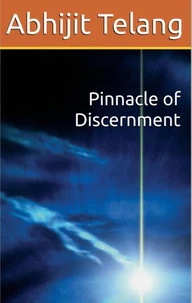Objective of this book is not to present an elaborate spectrum of all the potential tools, tests, and techniques but to provide a quick and efficient way of making sense of data at hand. This book is an attempt to help learners navigate through data and not get overwhelmed by the number of techniques and tests. Data is first step to discovery. There is no pride to be associated with knowledge or mastery of arcane or relative obscurity of tools or tests or methods.
Similarly, knowledge of the scientific discipline of data analysis does not have to become an elitist or classist discipline where few chosen can practice information apartheid with the needy. Hence one may do well to know that data analysis is a skill to be mastered for everyday needs and essentiality must always take precedence over flashiness and empty pride. Our day to day cognition itself is based on our inherent analysis of day to day events, moment by moment.
So, everybody is using all the known and perhaps many, many unknown principles of data analysis and synthesis as the 5 senses are processed (namely vision, hearing, smell, taste and touch) along with the very process of thought formation and resulting sentiments. Thus, everybody (any living being who is capable of sensing) has been doing a gigantic scale of data analysis, processing and synthesis already.
And each one of them can call themselves a statistician already since we were born, yet we never brag about being so with some exceptions of course... This series of notes will cover the very basics and let the learner explore on his or her own beyond the platform of fundamental analysis. These notes are deliberately not organized in terms of chapters, or sections but rather are meant to deliver a free form reading experience.
One can start anywhere depending on the interest and need. This is the first part covering the most basic of concepts. I look forward to publishing more very soon. Hope you gain some useful insights from these. Abhijit Anant Telang
Objective of this book is not to present an elaborate spectrum of all the potential tools, tests, and techniques but to provide a quick and efficient way of making sense of data at hand. This book is an attempt to help learners navigate through data and not get overwhelmed by the number of techniques and tests. Data is first step to discovery. There is no pride to be associated with knowledge or mastery of arcane or relative obscurity of tools or tests or methods.
Similarly, knowledge of the scientific discipline of data analysis does not have to become an elitist or classist discipline where few chosen can practice information apartheid with the needy. Hence one may do well to know that data analysis is a skill to be mastered for everyday needs and essentiality must always take precedence over flashiness and empty pride. Our day to day cognition itself is based on our inherent analysis of day to day events, moment by moment.
So, everybody is using all the known and perhaps many, many unknown principles of data analysis and synthesis as the 5 senses are processed (namely vision, hearing, smell, taste and touch) along with the very process of thought formation and resulting sentiments. Thus, everybody (any living being who is capable of sensing) has been doing a gigantic scale of data analysis, processing and synthesis already.
And each one of them can call themselves a statistician already since we were born, yet we never brag about being so with some exceptions of course... This series of notes will cover the very basics and let the learner explore on his or her own beyond the platform of fundamental analysis. These notes are deliberately not organized in terms of chapters, or sections but rather are meant to deliver a free form reading experience.
One can start anywhere depending on the interest and need. This is the first part covering the most basic of concepts. I look forward to publishing more very soon. Hope you gain some useful insights from these. Abhijit Anant Telang

 , qui est-ce ?
, qui est-ce ?